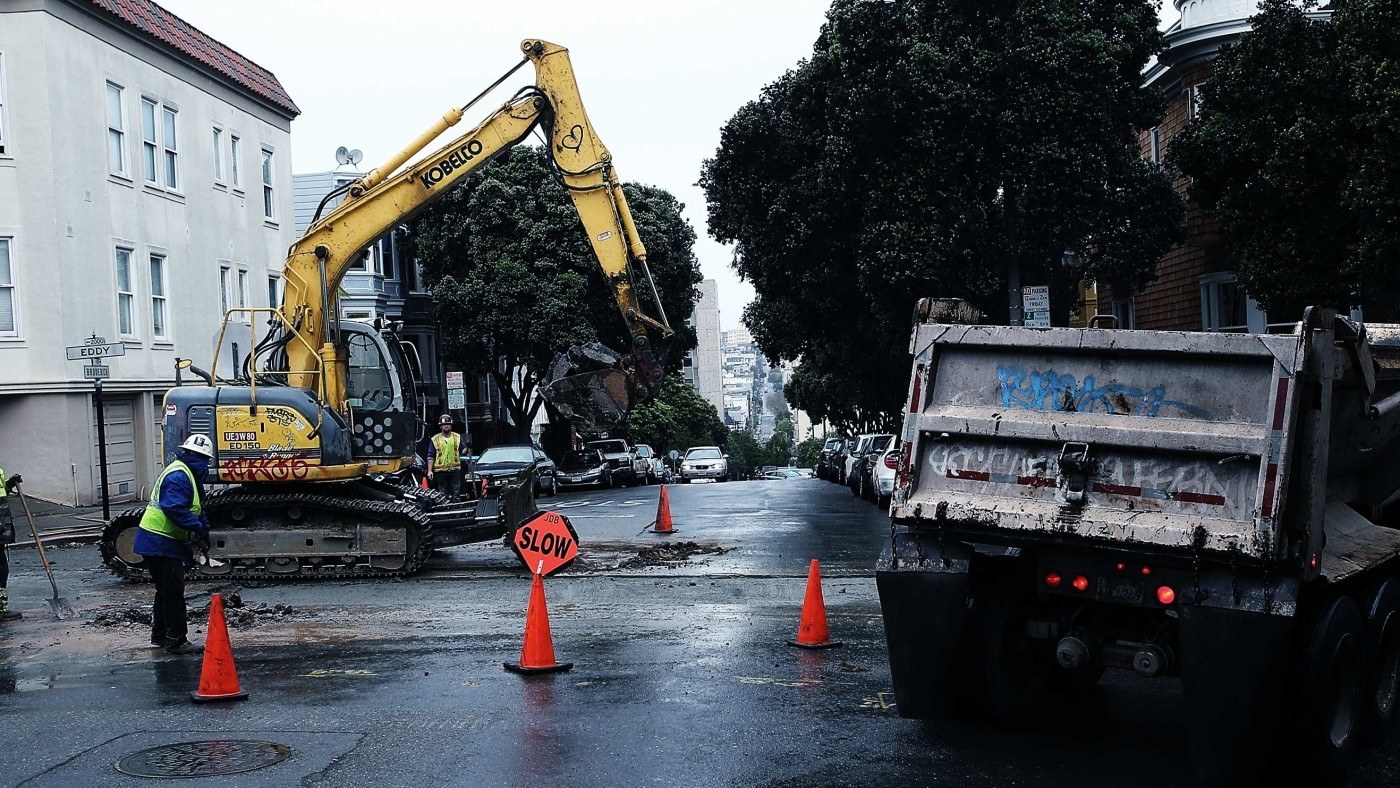In his latest piece for The Atlantic Magazine, chairman of the reform coalition Common Good Philip K. Howard writes about the need for a negotiated bargain between Congressional Democrats and Republicans to reform and pay for needed infrastructure repair. Howard, who has written persuasively and often about the need for common sense regulatory and judicial reform in books such as “The Rule of Nobody” and “The Death of Common Sense”, discussed the problem of dogmatic fidelity to bureaucratic process and a total lack of decision-making authority among the decision-makers with CapX American editor Abby W. Schachter.
Question 1. Repairing infrastructure is necessary. You write, for example, that “more than half of fatal vehicle accidents in the United States are due in part to poor road conditions.” But though needed, fixing infrastructure doesn’t get done. How and why did we get here?
We kept trying to perfect public decision making over the last 50 years with more and more process. Environmental reviews became 10,000 pages and well-meaning attempts to make decisions better to remove, authority.
Deliberate philosophical shift in the 1960s to avoid authority whenever possible and replace it with detailed rules and process. Took a few decades to create a culture and formal structure that prohibits official from making practical decisions.
Question 2. Officials are “prohibited from making practical decisions,” really?
It is hard to overestimate the power of cultural frames of reference. When you go into the strange land of Washington DC, there is an unspoken assumption, [indeed] a theological belief, that no one should have authority to make a decision.
Question 3. You are happy to report the good news that Congress did, after years delay, recently pass a $305 billion, five-year highway bill. Unfortunately, you also argue these good intentions may actually make matters worse. “The bill creates a new 16-agency committee to review projects and defines elaborate procedures on how to set a permitting timetable. But the timetable can be waived, and the new procedures assiduously avoid the one indispensable element for enforcing deadlines: a final decision maker.”
The Highway bill gives money to repair roads and [does represent an] effort to put a formal structure on top of endless process but that formal structure has so many large committees that it is likely to add only another level of complexity and bureaucracy. Having a 16-agency council to review permitting is like adding another year to the process. Just think about [what it might be like] getting 16 people on the same schedule. The final grant of authority is that director of OMB can direct disagreeing agencies to repair their disagreement? Director should have a right to make the decision. Why do we elect the president if not to make decisions?
Question 4. You raise an interesting problem: even if Democrats agreed to the bargain of getting the money for infrastructure as long as they go along with Republicans to lower the burden of red tape, in numerous cases special interests have come along before to spoil other projects. As you explain, “once approved, the [Bayonne bridge] project was then challenged in the courts based on—you guessed it—inadequate environmental review.” Even when you solve the political problem there are motivated interest groups who use the legal system to drive public policy by stopping projects they don’t want.
In our proposal there would be a limit on the time frame and the basis on which people may sue. Similar to procedures in other countries, lawsuits have to be brought within short period of time after approval – most often within 60 days — and the claim has to be adjudicated [in an] expedited manner. And no claim is allowed unless there is an explicit violation of law and serious misstatement of environmental impact. [In this way] you lower power of special interest to throw a monkey wrench in to needed projects.
Question 5. The scholars at the Mercatus Center argue that it would be much more effective to have state and local government deal with infrastructure as both have been doing for years. “State and local spending on infrastructure has accounted for roughly 75 percent of total infrastructure spending since the late ’80s. Prior to that it averaged about 70 percent except for a dip to around 65 percent in the late ’70s.” says Adam Millsap. And Veronique de Rugy argues that “infrastructure spending by the federal government tends to suffer from massive cost overruns, waste, fraud, and abuse. As a result, many projects that look good on paper turn out to have much lower return on investments than planned.” So why not advocate for states to take the lead instead of Washington, DC?
First, state and local governments have similar problems with prices [as Federal projects] so they need the same reform. Reform has to happen at every level. There was a case where power lines from a wind farm in the Pacific Northwest had to get separate approvals through every country in Idaho it went through.
Second, I generally agree that state and local governments are more responsive to popular demand. But some projects are interstate and require federal coordination.
You are not going to avoid federal involvement for interstate projects. I’m generally favorable to the instinct to push projects to the local level, but there is still the need for reform.


